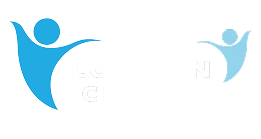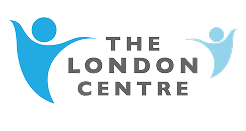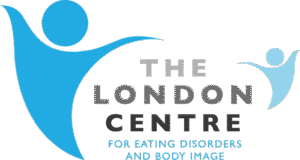Trauma and Eating Disorders
Many people experiencing eating disorders or significant body image distress have also lived through difficult, overwhelming, or frightening life events. Trauma does not cause an eating disorder in every case, but traumatic experiences, whether acute, chronic, or relational, can strongly influence how a person copes with emotions, their body, and their sense of self.
At The London Centre, we provide trauma-informed, specialist psychological treatment for individuals whose eating disorder or body image concerns are shaped, maintained, or complicated by experiences of trauma.
What Do We Mean By Trauma
Trauma refers to any event or series of events that overwhelm a person’s ability to cope and process what has happened. This may include:

The Link Between Trauma and Eating Disorders
Trauma and eating disorders frequently co-occur. For some individuals, eating disorder symptoms initially develop as a way of coping with overwhelming emotions related to traumatic experiences, or as a way of regaining a sense of control. For others, the physical and psychological consequences of an eating disorder create traumatic experiences in their own right.
Common ways trauma may interact with eating disorders include:
Understanding this interplay is essential. Trauma-related symptoms such as flashbacks, dissociation, and high emotional arousal can make standard eating disorder treatment more challenging without tailored support.

Complex Trauma and Emotional Regulation Difficulties
Complex trauma refers to chronic, repeated, or relationally based traumatic experiences, most often occurring during childhood or adolescence. These experiences shape emotional regulation, identity development, self-worth, and patterns of relating to others.
Some individuals with complex trauma histories may meet criteria for what is sometimes diagnosed as Emotionally Unstable Personality Disorder (EUPD). Increasingly, clinical research and specialist practice recognise that many features associated with EUPD, such as emotional intensity, fear of abandonment, unstable self-image, impulsivity, and relational difficulties can be understood as adaptive responses to early trauma, rather than fixed personality traits.
At The London Centre, we approach these presentations through a complex trauma formulation, rather than focusing solely on diagnostic labels.
Complex Trauma, Eating Disorders and Coping Patterns
This overlap may include:
Understanding these patterns as survival-based responses allows therapy to be compassionate, collaborative, and effective. Stepping away from these protective strategies needs careful consideration, planning and treatment of the underlying distress.
Our Trauma-Informed Approach
Every clinician at The London Centre works in a trauma-informed way, meaning we prioritise safety, stabilisation, trust, and emotional regulation throughout treatment. We validate differences in how people respond to trauma rather than pathologising those responses, an approach grounded in compassion and clinical evidence.
Key features of our approach include:

Therapies We Use for Trauma Within Eating Disorder Treatment
Your treatment plan will be based on your individual circumstances and may integrate several evidence-based models. Our clinicians draw on:
These approaches are adapted to your pace, needs, and goals, ensuring clinical safety and meaningful progress.
You may benefit from trauma-informed eating disorder treatment if you experience:
Our clinicians will help you understand whether trauma-focused therapy may be clinically indicated and ensure that stabilisation and nutrition are central to the process.


